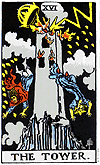09/11/05: LOVE AND THEFT
Four year ago exactly, I wasn't sleeping so well. I had heard cuts from Love and Theft, Dylan's long-awaited step into a new future. A Hollywood type had a downloaded copy and played me "Sugar Baby" and "Po Boy." I knew something special was coming, something strange and new and old and familiar all at once and it was being released on the morrow. I had been waiting all week, all month, all year. The next morning, my phone began a manic ringing somewhere around 6AM. I didn't pick it up. When it kept and kept ringing I began to wonder just how fucking good this new Dylan record was going to be. My east coast Dylan friends were evidently already freaking out.
The calls were from my mother, reporting my sister's witnessing of the first plane to hit the twin towers.
Later that day, in the strange chaotic, undone and spooky Los Angeles, when car bombs seemed immanent and a helicopter was stolen from the bank on Sunset as if we, my neighborhood specifically, was under direct assault, I found Love and Theft in an otherwise empty electronics emporium that had oddly stayed open.
I disliked the album immediately, as much as I admired it. There was a deliberate harshness of production, a lack of depth -- a linear quality that was new to Dylan -- I still find it difficult to explain. The rock and roll music seething beneath it was rough and raw, without any Beatles-esque gleams -- and the voice moved from monstrous to stupid, brilliant to sweet without any discernible regularity. Yet it pulled you through and created whole landscapes of story and alternate history at once realistic and apocalyptic. Dylan's new look, the grinning skull-faced Riverboat gambler, spooked with the same simultaneous discomfort and pleasure. The whole project reminded me of the strange popular-humor metaphysics of Melville's Confidence Man.
It was only temporarily that the world was forced to look away from Love and Theft. Within days it became for many at the time the single note of decency and hope in a dismal time of fear and madness, a place that located an American authenticity and source of pride at a time of collapse. As America regrouped with flags and misplaced patriotism the record was celebrated widely as a source of national pride. A year or two later, of course, we learned that a good deal of that "quintessentially American" album had been plagiarized from a relatively unknown classic of Japanese memoirs, Junichi Saga's Confessions of a Yakuza.
So it is four years later, despite rumors of secret studio sessions, no new Dylan album has appeared. Dylan has stayed in Mississippi way too long. The record has revealed itself, with the help of the memoir and its obsession with that city, as a prophecy of the New Orleans apocalypse. As the world contents itself with revisiting Dylan's 60s career, part and parcel of the self-absorbed obsessions of the generation who has led our nation to ruin, Love and Theft is as frightening as ever -- a raw and rollicking report from another America only an inch away from this one, different, secret, full of reports from a future past we still refuse to look at.

